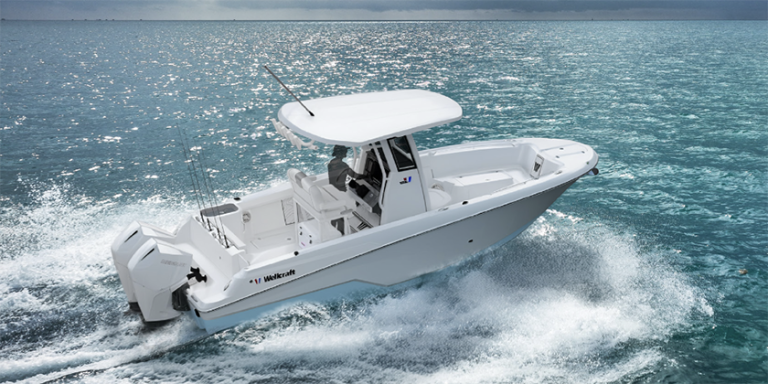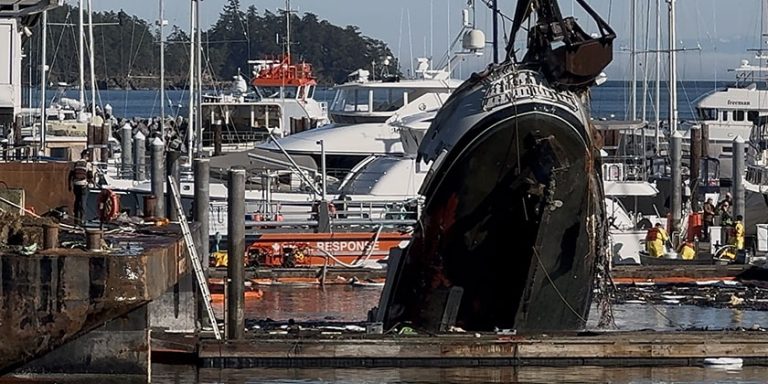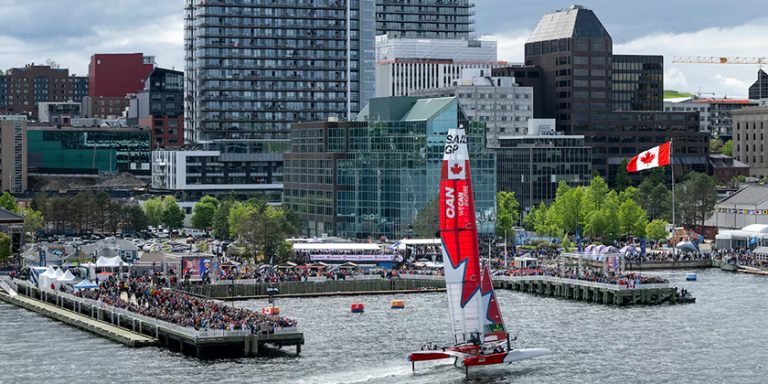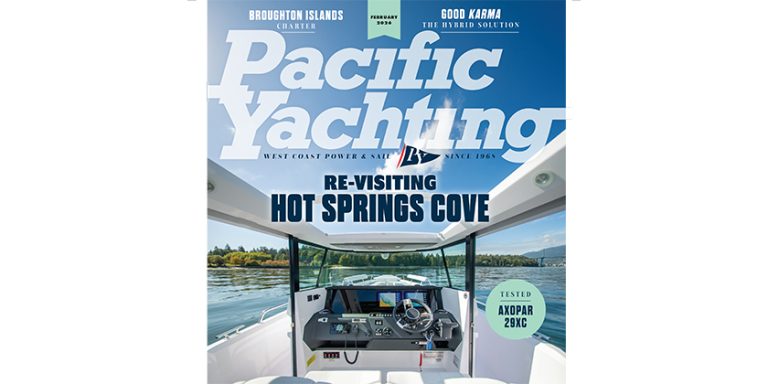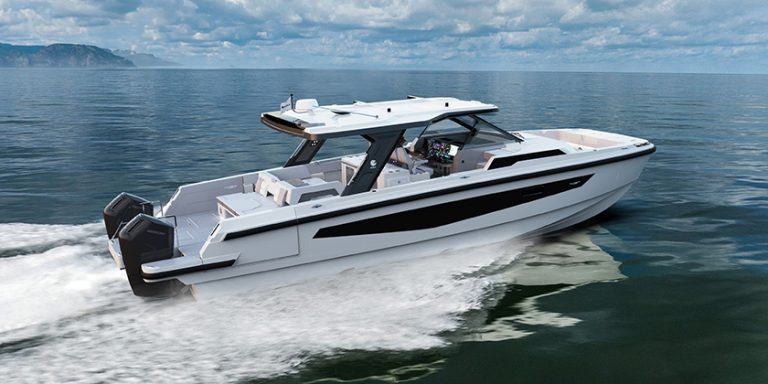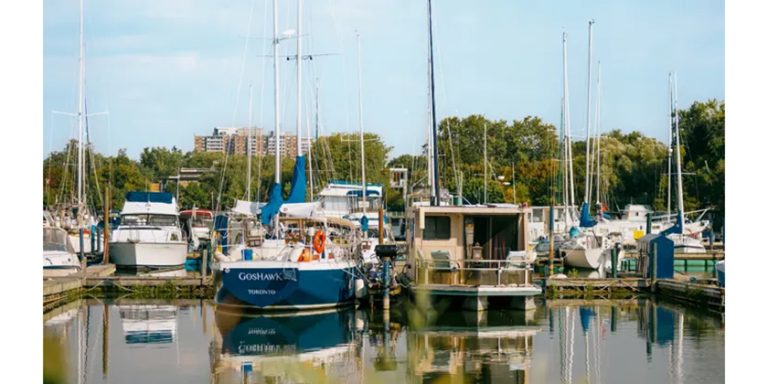2016 Vancouver Island Racing Series Forum Report
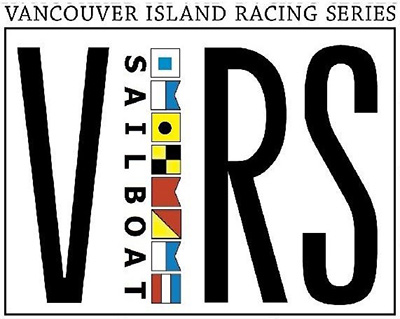
Dec 21, 2016
On November 19, 2016, Royal Victoria Yacht Club hosted the first ever Vancouver Island Racing Series Participant Forum. 36 attendees included; Fleet Captains, Racers, Race Officers, Crew members and Skippers from the following Clubs: C.F.S.A. Esquimalt, Royal Victoria YC, Sidney North Saanich YC, Cowichan Bay Sailing Association, Maple Bay YC, Nanaimo YC, Schooner Cove SC, Ladysmith YC
About this report This past October, following the 2016 season, a survey regarding the VIRS was published, and shared with as many participants as possible via email and the VIRS Facebook page. Approximately 100 individuals responded. A report on the survey findings was shared on November 13, 2016 and using that feedback, combined with associated emails and comments from other active participants in racing, the Agenda for the Forum took shape. This report reflects general and specific discussions ideas and resolutions from the Forum.
Intention
The intended purpose of this report, is that its contents be will be used by those working to build an even stronger, vibrant VIRS in 2017 and indeed the years to follow. This report is for all involved in the sport, and the hope is that it will be shared and benefit the entire sailboat racing community.
“At a time when the number of participants in sailboat racing has been falling it was the VIRS that rejuvenated the Sport in and around Vancouver Island. To see the report in it’s entirety, please continue ”
To see the report in it’s entirety Please continue on
The VIRS Mission Statement/Deed of Gift for the Overall Trophy
The VIRS (Vancouver Island Racing Series) was formed for the sole purpose of promoting, supporting and celebrating Sailboat Racing on Vancouver Island and beyond. The VIRS exists to encourage friendly interclub competition and build participation in the sport. This trophy is to be presented to the years Overall Champion upon completion of each year’s regatta season. The hope is that it will be displayed with pride in the winning boats home clubhouse. The Dorset Norwich-Young print titled Sailing, is a perfect expression of our sport. The VIRS is intended to be a cooperative of ALL participating clubs, on and around Vancouver Island. Alex Fox
VIRS Stewardship and Administration
In its first five years, VIRS results has been maintained, promoted and administered by a few individuals with the goal of bringing sailors together, building the sport and recognizing the top boats from the region each year. This VIRS Forum was an opportunity to formally transfer the stewardship of the VIRS to the co-operative of Sailing Clubs through the Fleet Captains in attendance. The Island Clubs now become Trustees of the VIRS, with its structure and administration to be determined by this cooperative moving forward towards 2017. The activities to be assumed and undertaken include: scoring, publicity, promotion, results, event coordination, scheduling, education and sport building. An official Scorekeeper will be appointed each year. Clayton Mills from C.F.S.A. Esquimalt has volunteered to take over this role from Gordon Wilkinson, Scorekeeper for the first five years. Thanks and recognition to Gordon for his many hours, and to Clay for taking on the role in 2017.
Scoring
Clayton Mills will be the official 2017 VIRS Scorekeeper, applying the guidelines contained in the “2017 VIRS Scoring Document” TBD. The historical mandate for VIRS scoring has been to establish a system that rewards both results and participation in a balance that encourages both friendly interclub competition and also recognizes the season’s top performing boats and crews. The “Scoring Document” has been modified each and every year with input from competitors. Noteworthy is the “Wild Card” event, encouraging Island boats to travel to events outside the immediate region and also encouraging boats from outside the region to attend VIRS regattas. This year’s Forum included much discussion about scoring, and in no particular order, here are some of the ideas that appeared to have traction to be given consideration for 2017.
1) There was a strong suggestion of a bonus in scoring for boats that travel great distance to attend a regatta. Boats should be recognized for this travel at Regattas, perhaps through entry incentives, acknowledgements or even awards. It was also suggested that there be an award tied to the boat(s) that travels the furthest during the season.
2) Related to the above, the suggestion was made that the VIRS should have a “Best Participation” Award each year. Bonus points could possibly be awarded for “each club passed” on the way to a regatta, or for miles travelled during delivery. The goal of course to encourage travel and participation.
3) Strong sentiment was voiced that the current Overall scoring used in distance races such as Round Saltspring and Swiftsure, makes it too difficult for certain boat types to score maximum points. The proposal was made that “Merit Points” (Reference Scoring Document) should be awarded to the top ten in Division or Class, rather that for the top ten Overall. Concern was also voiced about the fairness of separate starts in races that are scored Overall. Related to this it was suggested that perhaps Divisions that start together should be scored Overall together for the purposes of VIRS points. This would however make it more complicated for the Scorekeeper and a concern that this split scoring might also diminish the accomplishments of the Overall winners of the race. E.g. potentially a boat finishing in say 12th Overall (pretty good finish in a fleet of 100+ boats) could score fewer points than a Division winner finishing 40th Overall. Equitable? This will be for new VIRS governance to decide.
4) The suggestion was made that recognizing the Top Ten at Season’s end, should be expanded to recognizing the Top Twenty. It was felt that this will extend the spirit of the competition deeper into the fleet and associated rivalries to many more boats, perhaps leading to better participation in the late season regattas.
5) For possible consideration: Limit the number of scoring events from a single club, which can be included in a single boat’s season points total. E.g. Royal Vic hosts 3 VIRS Regattas; only one of those regattas could be counted towards a boat’s season total. The proviso would be that one additional race hosted by that club could be used as a “Wild Card”. This would perhaps encourage travel in order to obtain more scoring events, but it was also pointed out that it could make it more difficult to achieve the maximum number of scoring events. This might also discourage travel off the Island for other “Wild Card” regattas.
6) Possibly look at weighting “Wild Card” races differently than VIRS scoring races. Counterpoint: This may prove to be difficult for the Scorekeeper, and it may fly against the original purpose of the “Wild Card”, which was to encourage travel and cross water, cross region participation in both directions.
7) Related to scoring, it was noted during discussion that regatta organizers often make division splits based on predicted turnout, and this can lead to more divisions, with fewer boats in each division, or uneven boat numbers in each division. This makes it difficult for the boats in smaller divisions to score maximum VIRS points. It was also pointed out that this happens more often with larger boats and One-Designs. Suggested solutions included encouraging regatta organisers to keep division sizes the same or similar wherever possible. Encourage fewer division splits, as sailors universally have the desire to compete in good sized, more competitive fleets. The VIRS has no authority to mandate these suggestions, but Fleet Captains and Regatta organizers are requested give this due consideration.
8) Is “6” counting scoring events the right number? There are currently 13 VIRS scoring events and it was suggested that the total number of counting scoring events could be increased, perhaps to “7”. It could promote additional participation, at the risk of eliminating those who can’t get to that that maximum number, from Overall series contention?
Schedule
The survey highlighted one specific challenge or obstacle to attending some races, which is the jam packed schedule. Discussion at the Forum led to the possibility of moving certain regatta/race dates to create breathing space and possibly more participation in those events. It was recognized that certain regattas will not be moving for a variety of reasons. These were identified as: Saltspring, Swiftsure, SIN, Cow Bay, and Maple Bay. The schedule is particularly tight in May and June; Thetis, Saltspring, Swiftsure, Lasqueti, C.F.S.A. Looking at the entire season, some ideas were floated and the following regattas were identified for potential benefit from rescheduling. Thetis, C.F.S.A, Lasqueti, CRASH and Thermopylae. Each Fleet Captain agreed to have a look and discuss within their own club, then liaise with the other clubs for the benefit of promoting participation. Final scheduling TBD. – Also noted, CFSA is resurrecting Round Pender as a fun race Aug 23rd (Not VIRS or Wild Card). – Also noted, this is a Van Isle 360 year, recognized as a major “Wild Card” event.
Sponsorship
Sponsorship is a vital part of most regattas and races. Regatta organizers seek sponsorship based on varying needs and requirements. Regatta organization includes; Sailors and boats, a venue or host club, a course or race format. On top of these basic elements are; regatta promotion, race officials, volunteers, entertainment and meals, prizes and trophies. Sponsorship may be required to facilitate some of these things. At the VIRS Forum we had a good cross section of participants, racers, officials, organizers and sponsors. Here are some of the poignant paraphrased comments.
Stu Dahlgren, UK Sails: Sponsor of every VIRS event in 2017. Prefers sponsorship that is tangible and that benefits sailors directly, such as flags or pennants that sailors can display on their boats. This is much preferred to giving cash to an event and not knowing or seeing the direct benefit. Another of his favorite sponsorships is the team competition at Round Saltspring, providing a new Optimist Dinghy sail to the winning team’s Junior Club Program.
Campbell Thompson, Trotac Marine: Sponsor of Swiftsure, Saltspring, CFSA, CRASH, THRASH, Thermopylae, and Cow Bay in 2017. When giving cash it’s always good to know what that money is being used for and that his sponsorship is directly attached to something of benefit for the regatta or race participants. Campbell also relates sponsorship to value, and getting direct exposure to Trotac’s customer base? Legacy or long term benefit to the sport is also an important consideration. If there is a budget surplus from a sponsored event, it’s always good to know where that money is going, transparency in other words. If those surplus funds, for instance, are going to pay for a volunteer BBQ, no problem, but those volunteers should be made aware of the Sponsor involvement. Soliciting sponsorship for a Club Regatta should include exposure to the general membership. This is a value added for the sponsor that extends beyond the short window of a regatta of race.
Charlotte Gann, Sponsorship chair for Swiftsure: Charlotte invited all in attendance to check out the Swiftsure website, where there’s a sponsors information package, including much information on what Swiftsure sponsorship entails and exactly what the benefits are for a sponsor. Charlotte also mentioned that as she is very much aware of the importance of tailoring each sponsorship package to the needs and requirements of each individual sponsor, flexibility in a word. She also stressed the importance of making sure the participants connect with the sponsors.
Dunnery Best, 2016 Commodore RVYC: RVYC is currently reviewing its sponsorship situation with an eye on developing a unified overall sponsorship strategy. The goal being to establish consistent guidelines, standards and protocols for sponsorship engagement for any club regatta or event.
One other suggestion was that regatta organizers be encouraged to expand their sponsorship search beyond the comfort zone of Marine oriented businesses. Marine businesses are of course happy to promote, be involved in and sponsor regattas and races, but it was pointed out that this well is only so deep and it’s just not possible to respond positively to every request. There are indeed businesses that have little or nothing to do with the sport that could be interested in, and benefit from regatta sponsorship. Suggested by Stu, and supported by many in attendance, was the notion that sailing as a whole could attract more sponsors by putting its best face forward as a clean, environmentally responsible sport, a good community member. It was also pointed out, that this may not be how some people view our sport, so this will take some work. Company’s today are more and more environmentally conscious and intent on tying themselves to groups that share that same vision.
Clean Regattas, Charitable Initiatives, VIRS Conservancy Chest
How’s that for a segue way? Directly linked to comment above, the VIRS Conservancy Chest was established this year with an eye to not just getting behind a charitable cause, but also doing something good as a collective. This is surely something we can all agree on.”Yes we care about clean water; we care about clean beaches and the preservation of that vital, most valuable resource, our oceans!” This year the Conservancy Chest travelled the regatta circuit, and participants were asked to chip in spare change whenever the spirit lifted them and we managed to raise $600, which was subsequently donated to the Vancouver Island Surfrider Foundation. All in attendance at the Forum agreed that we CAN do much better! Here are some of the suggestions and proposed initiatives that followed.
* VIRS Chest needs to be more front and center at each regatta. More promotion!
* Include a donation box option with regatta registration (online or in person)
* Set aside an amount from each VIRS regatta registration, say $5.00.
* All in attendance spoke well of the Surfrider Foundation as a recipient, citing that the organization does real, tangible beach clean-up projects. Several in attendance had participated in successful clean up events.
* Suggestion of 50/50 draws at regattas, but may require gaming license?
*Sailors for the Sea clean regattas program was suggested as a good template for responsible regatta practices. Elimination of plastic bags, paper SI’s, unnecessary packaging, plastic water bottles etc. Also suggested was that regattas might include volunteer participant clean-up activities.
*Approach organizations to see if they would match or do a “round up your bill” to help with donations.
* Promote VIRS charity affiliation through all Island Clubs. Websites, bulletin boards, newsletters, perhaps even at Boatshows.
Handicapping (PHRF)
This of course is a Hot Button topic. The current handicapping landscape on the Island is recognized as being unsatisfactory and unacceptable. The ongoing issue of having two non-cooperative PHRF handicapping authorities creates divisiveness and fragmentation among sailors and clubs. The vast majority of participants recognize that this as very damaging to the sport and unhealthy for interclub competition here on the Island, and throughout the region. Discussion revolved around “Yes, we recognize the problem, now what can we do to solve it?” There were two individuals wanting to make statements regarding the current PHRF handicapping situation in attendance. Again, their comments are paraphrased.
Bill Allan, Vice President PHRF Northwest, Nanaimo Yacht Club: Bill spoke to the current willingness of PHRF Northwest to work towards solving this problem and basically do whatever it takes to move the Harmonization process forward. He also spoke about the new PHRF-NW web presence that will allow full transparency with boat measurement/handicap data available to anyone. This new website will also allow for easy registration and fewer mistakes and clerical errors. Bill also spoke briefly to the historical frustration of having two PHRF authorities, plus the challenges and time waste of handicappers having to normalize boat ratings at regattas. Bill also expressed his dismay over the unfortunate division that has resulted within his own club in Nanaimo.
John Windas, BC Sailing PHRF Handicapper SNSYC: John spoke to the benefits of his club being associated with PHRF BC Sailing. Primary point was the benefit of having this year’s appeals meeting at SNSYC here on the Island for the first time. John suggested that this was the first time a PHRF appeal was held on the Island. The additional point was made that this would lead to many more appeals and rating adjustments being heard and decided in the future here on the Island.
Further conversation ensued and briefly slipped into some historic hard feelings regarding how we ended up with the mess of two competing PHRF authorities and the problems this has caused. Participants were reminded that this was not a NW vs. BC Sailing debate. Conversation was then nudged back towards solutions oriented discussion. Suggestions included in the extreme of abandoning both groups and assigning our own handicaps for the 2017, to Fleet Captains and Club Handicappers getting together before the first VIRS event and deciding on handicaps for ALL likely VIRS competitors in 2017. The question was then posed to the group in order to establish some consensus. “Raise of hands if you believe the current situation of having two authorities and having to normalize ratings is a good thing? Consensus was reached and discussion quickly moved towards what type of action, we as a group could take to solve this problem. Pressure to both handicapping groups through the Island Club handicappers and representatives was an obvious initiative. The Forum also agreed that we needed to send a strong statement of solidarity, addressed to both groups, PHRF NW and PHRF BC Sailing. Here is that message:
“The unified voice of the VIRS Participant Forum insist that the officers and representatives of both PHRF NW and PHRF BC take the issue of “Harmonization” seriously and begin communication that will lead to cooperation, alignment of measurement protocols and base ratings. PHRF racers want one rating that will be honoured if they show up in Victoria, Vancouver, Seattle, Anacortes, or Portland. This division and non-cooperation that currently exists has damaged our sport for too long. Time for action and resolution, period!”
What makes a Good Regatta?
* Number one on the wish list is to have top flight on the water organization and committee work. This showed up in both the Survey and at the Forum.
* To race against good depth of competition. One of the big draws to travelling to an out of town regatta is to test your boat and your crew against some others boats that you don’t always see. It’s no fun spending the time and effort travelling, only to race against three boats. Keep the divisions competitive and a decent size.
* Competitors would generally prefer to race against similar type boats. This doesn’t necessarily mean rating the same. The consensus seems to be that it’s better to have similar boats types racing against each other over similarly rated boats. Apples with apples, oranges with oranges, within reason, when possible of course.
* Competitors don’t want to sail around for long periods of time between races. Having too many starts at regattas can lead to lots of waiting. The suggestion of combining divisions into one shared start can help speed things up and also make the racing more interesting. CRASH regatta 2016 was a good example Martins and PHRF ATB starting together.
* Standardize the SIs to avoid races being thrown out for odd ball things. Time limits are a major cause of misunderstandings and hard feelings among competitors. Shortened course options allow more competitors to complete the course, and this is preferable to large numbers of DNF’s.
* Provide a variety of fun shore side activities and opportunities to socialize with fellow competitors, committee members and organizers. Welcoming atmosphere at the regatta venue or club, with as few onerous requirements as possible for the participants.
* This last item is a touchy one and somewhat subjective. Racers want good value. Items mentioned included reasonable entry fee, reasonable meal and drink cost, provided or reasonable moorage.
Building the Sport of Sailboat Racing
Building the sport is about providing opportunities for access, education and engagement. It’s also about promotion, exposure and community involvement. The sport itself needs to have a consistent level of organization and infrastructure through the cooperation of clubs and all of its participants.
* Access to sport is corner stoned by public sailing programs, casual racing programs, club open houses, school sailing leagues and junior sailing programs. Access is also through personal invitation to friends, family and acquaintances.
* It’s important to recognize that Sailing and Sailboat Racing are competing against every other leisure time activity and sport for numbers and new participants. Continuance in the sport is very much tied to keeping those involved both active and engaged, while providing opportunities to race, learn and feel part of the Sailboat Racing community.
* A suggestion put forward that clubs and or fleets should have several Open House days during a year, possibly inviting members of other sports clubs such as paddle boarders, kayaker, power squadron, bicycle, rugby, running, whatever, to come out for an afternoon and give it a try. Replenishing crew banks needs to be an ongoing task.
* Create bridges between those enrolled in junior dinghy sailing programs/race teams and keelboat racing must not be ignored. Junior racing programs should include opportunities to crew and sail on keelboats. This can be mandated within clubs and should in fact be strongly encouraged by sailing directors and coaches. Special award for Top Junior keelboat racer at your club is a great idea.
* One continuing concern from regatta organizers is the difficulty in finding qualified race officers, experienced volunteers and judges. The suggestion is that through the VIRS cooperative, clubs can establish a network of shared resources, volunteers, race committees and judges. The additional suggestion was for communal educational seminars on rules and race management.
* Royal Vic’s John Able (International Race Officer) and Mike Turner (Gold Level Judge) have offered to provide Race Officer training and Rules clinics, to help fill the demand for race committee volunteers and to provide educational opportunities for sailors and potential protest committee members.
* Having qualified officials at a regatta ensures that proper rules and procedures are upheld. Each regatta should have a protest committee set up prior to the regatta start, rather than searching the bar at the last minute for likely volunteers.
* Approach local experts to give short seminars on rules, tactics, weather, tides etc. the evening before a regatta. This will get sailors out to the club early and maybe provide an opportunity for skippers to find crew or crew to get on a boat. Post Race day or Regatta de-briefs are also a part of the engagement/education puzzle.
* Host new sailor race days, fun races or fun race/cruise events that will be less intimidating and more educational for new racers.
* Use social media to promote the sport and its activities. Make Sailboat visible, accessible and welcoming, the amazing sport that we all know it is.
Thanks you to everyone who participated and contributed to the Forum and a special thank you to Heidi Leach Leckenby for setting up the VIRS Survey and report that helped shape the VIRS Forum. Looking forward to seeing what exciting new things the 2017 VIRS brings.
Alex Fox
Post Forum the Fleet Captains in attendance immediately convened a meeting, setting the ground work for VIRS 2017 planning.

